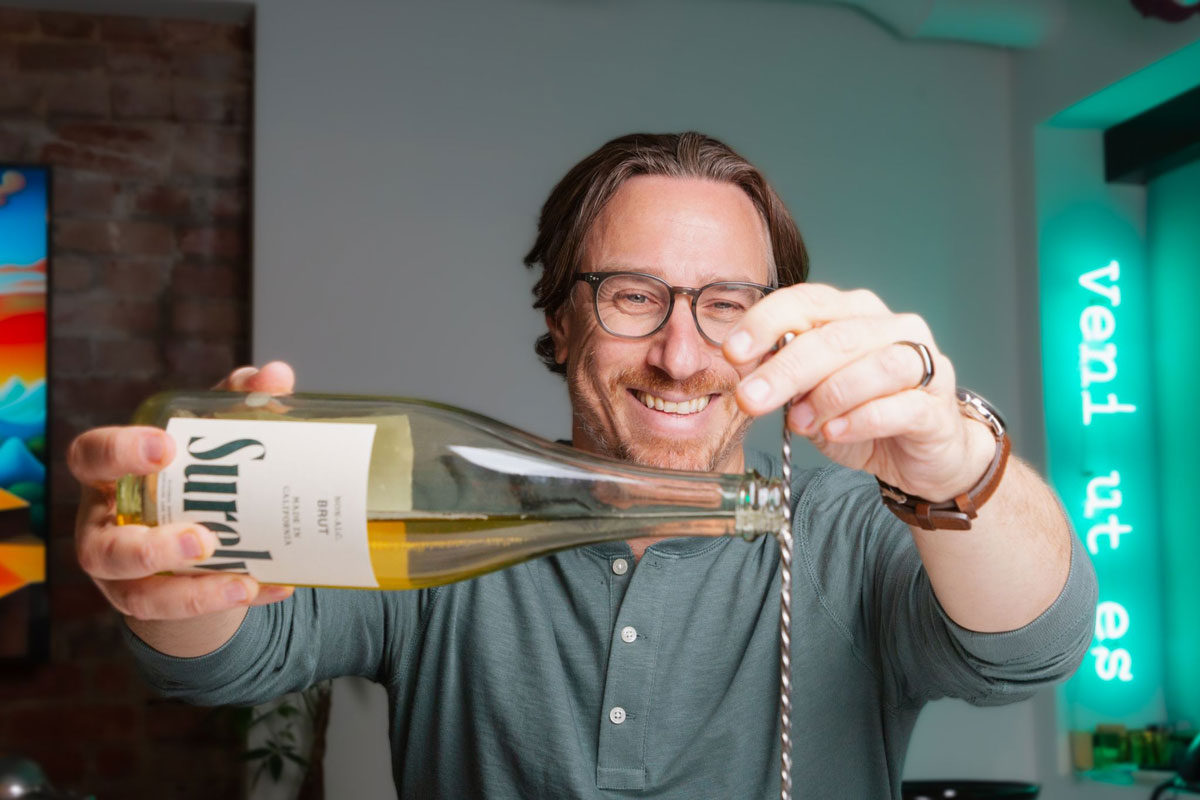
While the trend towards ‘low&no’ drinks has been around for a while now, it would be a mistake to assume that everyone – on either side of the bar – fully understands the category.
Award-winning US spirits mixologist Derek Brown has recently become an advocate for mindful drinking, publishing books and delivering lectures on the subject, and is thus perhaps the closest thing there is to an expert on emerging low-alc culture.
Last month, he gathered industry figures from both sides of the Atlantic to discuss the issues facing venue staff trying to make the most of both low’n’no products and their potential customers.
“You may think that everyone in the world knows about low alcohol beverages – but some people are just starting on this subject, thus we have called this seminar ‘starting from zero’,” said Derek.
“So who is interested? Who is buying this stuff?”
“We have come a long way from the target market being people who are driving, people who are pregnant, people with religious reasons”
According to ‘no and low professional’ Noah Villeneuve, formerly of Club Soda UK, the category has broadened to the point where ‘essentially anyone can be a low’n’no customer’.
“We have come a long way from the target market being people who are driving, people who are pregnant, people with religious reasons,” said Noah. “Now, some people simply decide that tonight, they aren’t going to drink alcohol.
“But the question is how do we get liquid on the lips of those who are less curious? It is now about explaining to people that these are just delicious liquids, that they will enjoy and that are worth paying for.”
Hospitality & Beverage Consultant Robert-Bjorn Taylor highlighted the new demographic of ‘substituters’, who will go back and forth between alcoholic and non-alcoholic drinks across the course of the same venue visit: “Substituters are still drinkers. But for the sake of their bodies, they alternate.
“For them, it is about being involved in an on-premise space and still enjoying that without getting, y’know, drunk.”
On the back of that tactical drinking trend, Robert reported ‘crazy growth’ in non-alcohol beers in ‘dive bar’ settings.
Alex Jump, co-founder of Focus On Health, formerly of Manhattan cocktail institution Death & Co, stressed the importance of not ‘othering’ people at the point where they order a no-alcohol drink.
”The burden falls on people selling to find the best way to present low-alc without causing embarrassment”
“The thing that has struck me, for a lot of people who are out looking to order non-alc, they are looking to not stand out while doing so,” said Jump.
“When non-alc drinks come out in a Collins glass – looking like a kid’s soda – you are not helping them integrate with their group.
“Also, repeatedly asking people ‘are you sure you want non-alc?’ is not helping. We used to clarify with people, but now I would not, because we clearly display ABVs so people can make an informed choice.”
Derek agreed that barstaff need to exercise tact when dealing with low-alc customers: ”The burden falls on people selling to find the best way to present low-alc without causing embarrassment. Someone might be in recovery – they don’t want to have to share their whole life story just to order a drink.”
He concluded: “It is about integration, not separation. People want to feel included. Hospitality is about inclusion.”



















